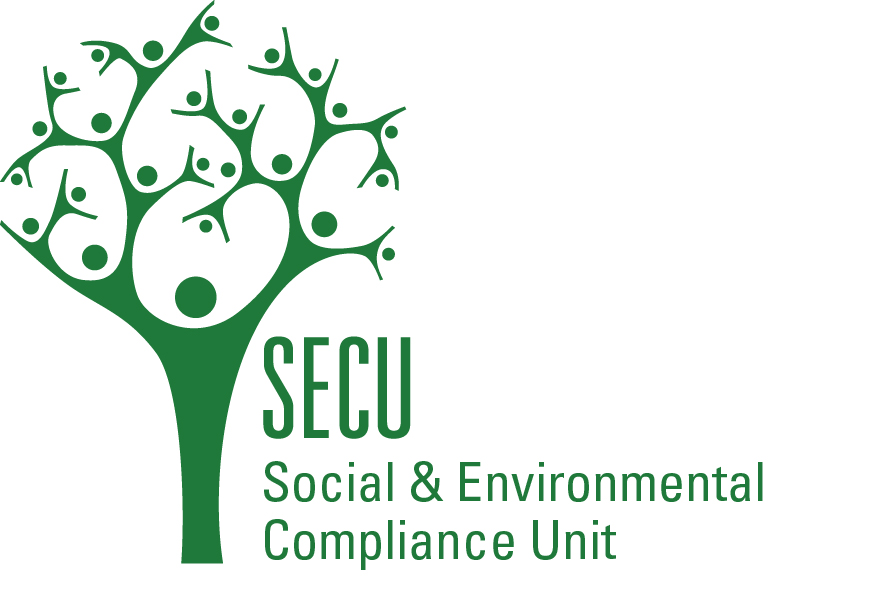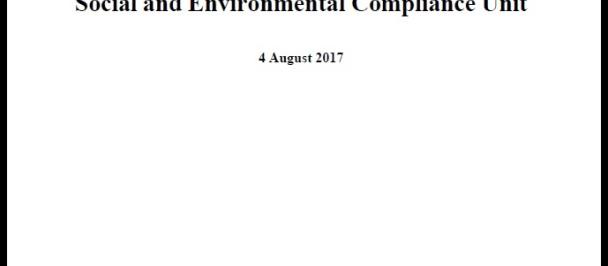UNDP
Accountability

Social and Environmental Compliance Unit (SECU)
Responding to Concerns Relating to UNDP Social and Environmental Commitments
SECU responds to complaints that UNDP may not be meeting its social and environmental commitments. UNDP established the Social and Environmental Compliance Unit (SECU) to ensure accountability to individuals and communities.
Policy Basis
SECU ensures compliance with the following commitments:
- UNDP’s Social and Environmental Standards (SES);
- The Social and Environmental Screening Procedure (SESP);
- Social and environmental commitments made by the UNDP in other policies;
- Social and environmental commitments made by UNDP in the context of a specific funding programme or project.
The compliance review process for pre-2015 projects for which UNDP has committed to provide compliance review will apply to commitments reflected in the project document, and, for projects supported by the Forest Carbon Partnership Facility (FCPF), the Common Approach to Environmental and Social Safeguards for Multiple Delivery Partners.
Who May File a Complaint?
- Any person or community who believes the environment or their well-being may be affected by a UNDP-supported project or programme may file a complaint.
- A representative, such as a civil society organization, may also file a complaint on behalf of affected communities.
People who file complaints may request that SECU protect their names and identities.
Submitting a Request
You may submit requests via our telephone, post, email or social media applications. For more information on these options, please see below.
Complaints should be as specific as possible, describing current or potential adverse impacts that have a plausible causal link to a UNDP-supported project/programme and, if possible, the UNDP social and environmental standards/commitments that are believed to have been violated.
You may submit a SECU and/or Stakeholder Response Mechanism (SRM) request or communication to: project.concerns@undp.org and secuhotline@undp.org (in any language).
If you choose to email or mail your complaint, please note that there are no strict format or language requirements. It is helpful if the complaint includes the following information:
- Name, address, telephone number, and other contact information.
- Whether the Complainant(s) wish to keep their identity confidential, and if so, why.
- Name, location, and nature of the UNDP project or programme (if known).
- How the Complainants believe they have been, or are likely to be, adversely affected by the UNDP-supported project or programme.
- If a third party, such as a civil society organization, is filing a complaint on behalf of an affected individual or community, the complaint should include evidence the third party is working on behalf of the individual or community.
- Although helpful, it is not necessary to cite to specific UNDP standards or policies (such as the UNDP's Social and Environmental Standards).
For assistance in submitting a request via email or mail, please download this guidance form.
Please message us on WhatsApp, Viber and Signal using 001 (917) 207 4285,
or through our WeChat account @SECUSRM.
You may also mail any request or communication (in any language) to:
Attn: SECU/SRM, OAI, UNDP
1 U.N. Plaza, 4th Floor
New York, NY USA 10017
Call (costs are incurred by caller) using 001 (917) 207 4285. Skype is an affordable way to place such a call.
SECU Case Registry
SECU's Case Registry contains detailed information about SECU's current and prior compliance cases.
Visit SECU's Case Registry herePublications and outreach materials
See our library of brochures, policy documents, social media accounts, and more!

 Locations
Locations
